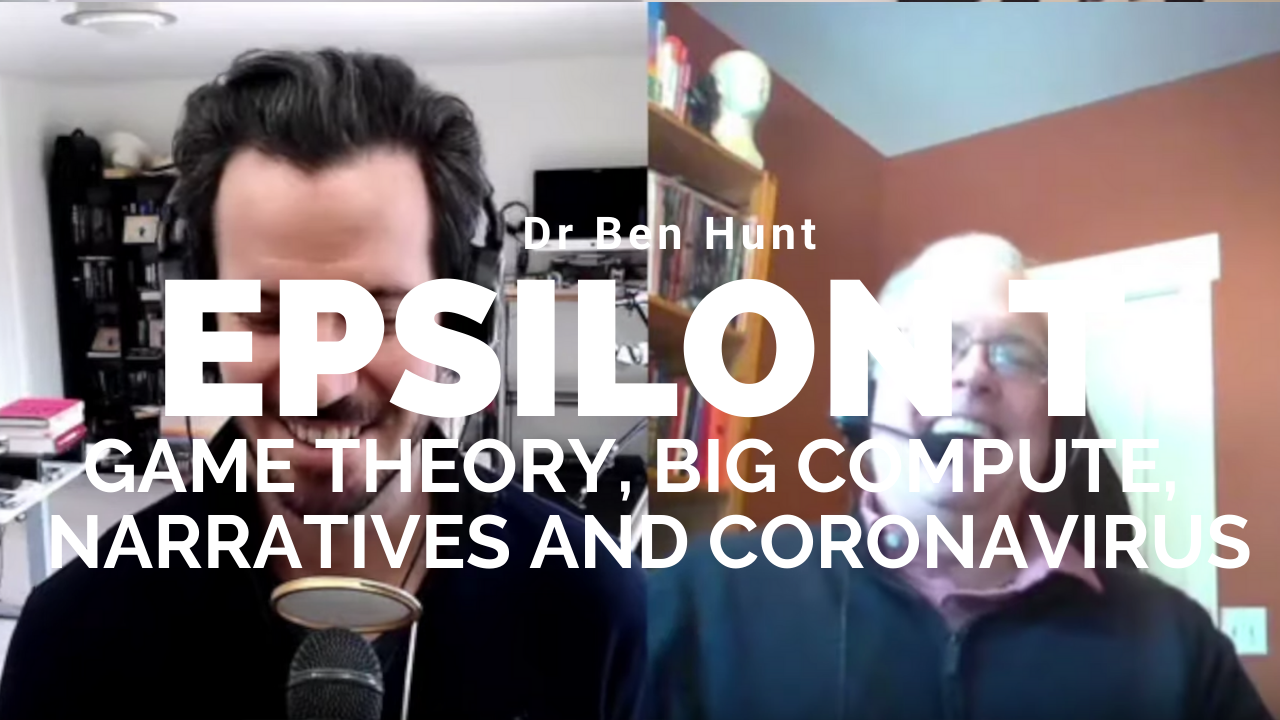During his recent interview with Tobias, Dr Ben Hunt from Epsilon Theory discussed Game Theory for Laymen. Here’s an excerpt from the interview:
Tobias Carlisle:
Can you give us, is there a layman’s version of your game theory that you can, is there some way that you can articulate it for us, without us needing to be John Nash?
Dr Ben Hunt:
Sure. Game theory is strategic interaction. Just like the tango, it takes two to play a game, and all game theory is, is trying to be rigorous. That what you do may well depend on what you think I’m going to do. And what I’m going to do may depend on what I think you’re going to do. And both of us understand that the other one is thinking the same way. Game theory at its core is this understanding that you’re actually, you’re not smarter than the other guy. That we’re all able to think strategically.
Dr Ben Hunt:
And we’re all immersed in this idea of, well, I’ll do this if he does that, but he’ll do this if he thinks I’m going to do this other thing, you would think that might be random or infinitely recursive at least. And it’s not. There are rules to that, rules based on how we as human beings are hardwired, rules based on rationality and information flow. That was probably a more than a thumbnail sketch. But that’s what game theory is. Just trying to figure out those rules.
Tobias Carlisle:
There’s some famous versions of it, right? There’s prisoner’s dilemma, where each one has the incentive to rat the other one out. And so if you play that out to the end, they both rat each other out. And then there’s prisoners revenge, I think, where the gang can find the guy who gets out. And so that changes the dynamic a little bit. And then there’s also, I forget what it’s called.
Dr Ben Hunt:
Chicken.
Tobias Carlisle:
Chicken.
Dr Ben Hunt:
Chicken is a famous as well.
Tobias Carlisle:
There’s one with two lovers, who they’d rather be together than apart. And so, that changes how their incentives are, when they’re trying to decide what they’re going to do. What was your area of study in particular? If that’s not too technical.
Dr Ben Hunt:
No, it’s not technical. We’re all familiar with these, let’s call them two person games, two player games, because they’re fun. We all know examples of them. We all see examples of them in our media, our culture, right? So the prisoner’s dilemma game is at the heart of every police procedural, every CSI, every NYPD show. It’s based on a prisoner’s dilemma. Chicken is also a wonderfully evocative game, because we’re all familiar with it, right? From Footloose, to an older generation, rebel without a cause. These are all good examples of the game of chicken. But what’s really powerful to get back game theory, is it’s not these two person games, as fun as those are to play. Game theory can say so much about how we act as a crowd.
Dr Ben Hunt:
Right? So, what is our crowd behavior? Are there rules to the way investor behavior works? Right? Are there rules to the way that political behavior works? Those are such powerful forces in our lives, right? Are there rules the way our families work? It’s these group dynamics, that I think are so powerful. We tend to wave our hands at these group dynamics and we say, Oh, it’s chaotic or random, or who can figure that out. And the fact is, there are these games that are played as crowds, and trying to figure out those rules, man, that’s at the heart of, I think playing the game of markets, playing the game of the elections. So, that’s what I really try to write about. And what I really tried to study.
You can find out more about Tobias’ podcast here – The Acquirers Podcast. You can also listen to the podcast on your favorite podcast platforms here:
For all the latest news and podcasts, join our free newsletter here.
Don’t forget to check out our FREE Large Cap 1000 – Stock Screener, here at The Acquirer’s Multiple:



